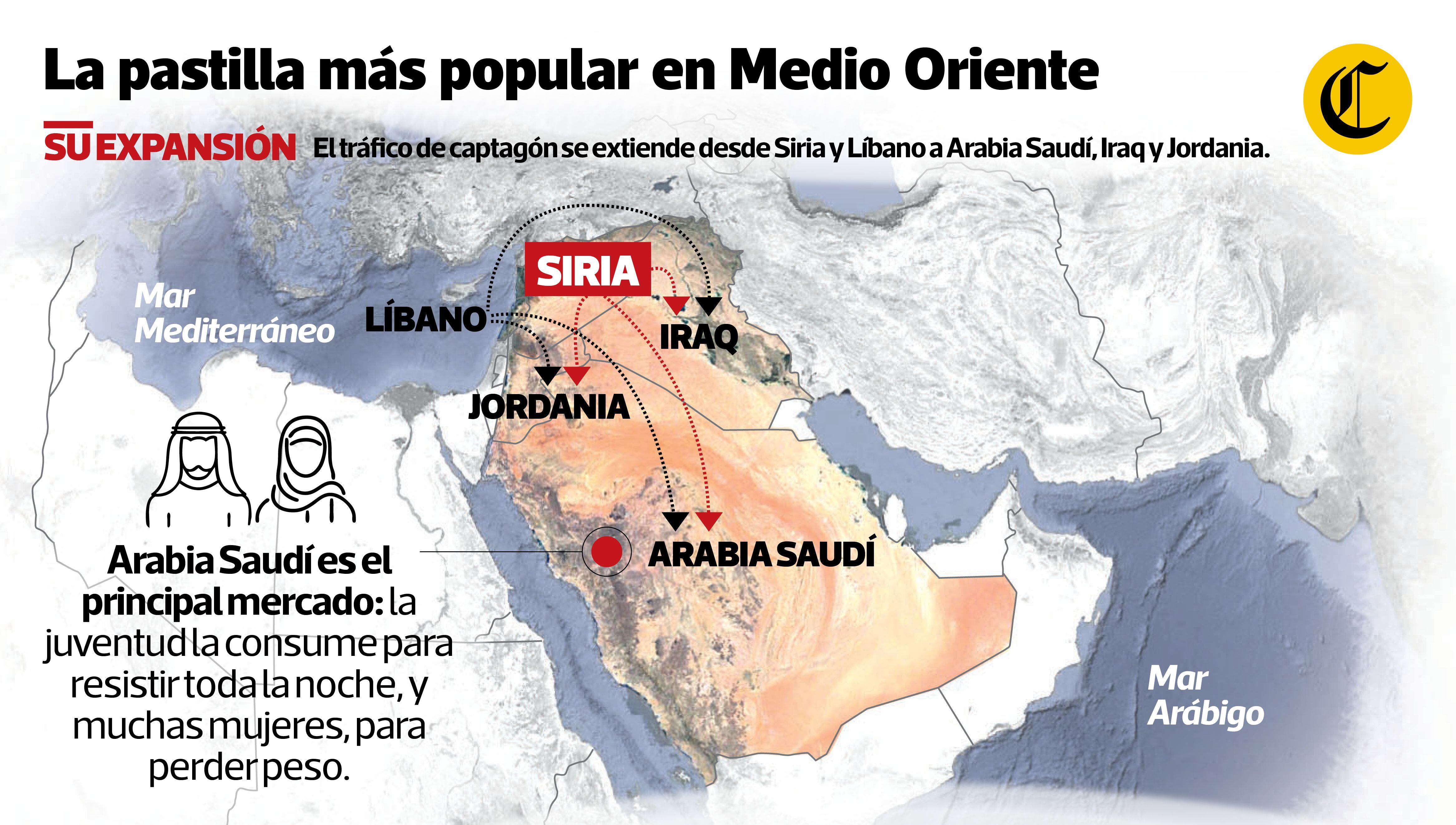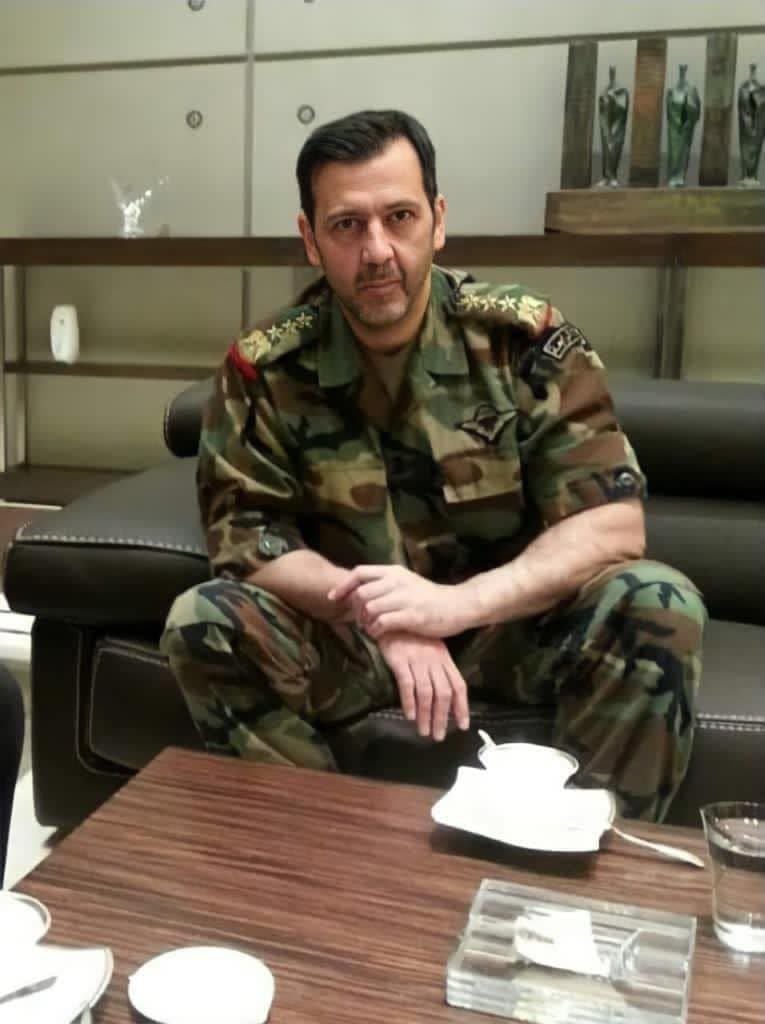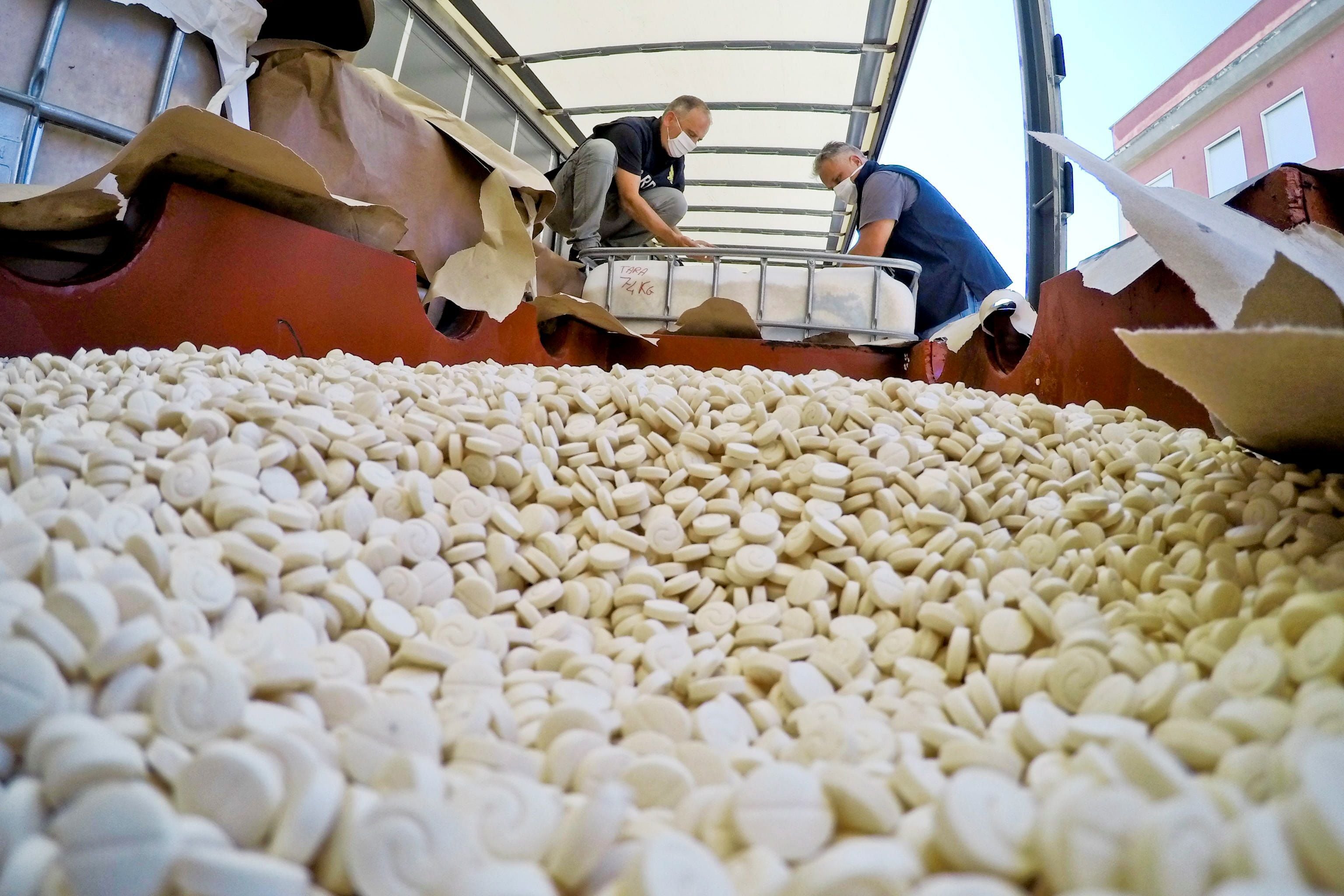In 2015, when the caliphate of Islamic State was at its most expansive stage, encompassing entire provinces of Iraq and Syria, a word came along with its fearsome constituencies: captagon. It was then called the “jihadists’ drug”, a pill that gave them enough courage to be able to commit horrendous torture and executions without blinking.
But it also meant a very good source of income for the fundamentalist group, which also trafficked in the precious drug.
Although the caliphate was dissolved, the jihadists did not leave, and neither did the captagon. On the contrary, the trade in this drug has become a matter of state in Syria, moving millions of dollars and becoming, according to recent investigations, the support of the Bashar al-Assad regime. A dictatorship turned almost into a narco-state.
prohibited antidepressant
Captagon, the trade name for fenetylline, was introduced in the West in the 1960s to treat hyperactivity, narcolepsy and depression, .
However, it continued to be used in various countries in North Africa and the Middle East, but no longer as a medicine, but as amphetamine.
As alcohol consumption is prohibited in Muslim countries, the captagon became the escape valve, as well as being a quick method to have energy and stay alert.
“I can work two or three days. This has allowed me to double my salary and has helped me pay my debts ”, Faysal, a Saudi worker in his 20s, told AFP when speaking without shame about his captagon consumption.

Over the years, its use has become more and more common, mainly due to its low price. Less quality pills can be had for up to a dollar although it can go up to 25 dollars.
According to a recent investigation of the Newlines Institute for Policy and Strategya think tank Based in Washington, in 2021 alone the illegal captagon market produced profits of US$5.7 billion.
And Syria represents 80% of the world traffic of this drugmaking it vital for sustaining the economy of a regime bombarded by Western sanctions since civil war broke out in 2011.
“Our study showed that the captagon has become the main source of income for the Syrian regime,” Caroline Rose, a researcher at the Newlines Institute, recently told BBC Mundo.
“The captagon is supporting the regime, not the country. That is the characteristic of a narco state.”explains to El Comercio Arlene Ramírez Uresti, academic at the Universidad Iberoamericana de México and columnist for “Forbes” magazine. “In the case of Syria, it is the government that is generating the distribution networks, the merchandise entry permits and who is facilitating the expansion of this market, in order to maintain its validated political regime, and maintaining a sphere of control and power that prevents the end of war and political dysfunction.
The consultancy Center for Operational Analysis and Research (COAR, for its acronym in English) has also pointed out in a report that the consequences of the conflict have led the country to become the “global epicenter of captagon production.”
“With an economy crippled by war and sanctions, Damascus had few good options,” notes Ian Larson, senior analyst for Syria at COAR.
“The lack of conventional economic activities has increased the relative attractiveness of industrial-scale drug speculation, which has been largely captured and controlled by narco-businessmen linked to the regime of Syrian President Bashar al-Assad and the regime’s foreign allies.” indicated this center.
family business
The various investigations carried out by NGOs and the AFP agency on the same border between Syria and Lebanon indicate that the family al asad She’s heavily involved in captagon trafficking.
Of them, the most prominent is his brother, Maher al-Assad, head of the Fourth Division, the army’s elite unit, who has built a support network even with the rebel groups that initially confronted the regime but with whom he has now forged alliances. From enemies to partners.

“Maher al Asad obtains a part of the captagon’s profits, which are even used to pay, in part, the salaries of an armed group linked to the Fourth Division”Rami Abdel Rahman, head of the Syrian Observatory for Human Rights (OSDH), a London-based NGO, told AFP.
Ramírez Uresti points out that speculation about the participation of the Al Asad family in the illegal trafficking of substances even predates the outbreak of the civil war, 11 years ago. “One of the big businesses they have is drug and arms trafficking”comment.
Between Syria and Lebanon
Not only Syria is focusing on this lucrative business, but also its neighbor, Lebanon, which for years has been mired in a pressing economic crisis.
The Lebanese Shiite movement Hezbollah, which is also an ally of Al Asad, is in charge of guarding the entry of captagon shipments through the porous border between Lebanon and Syria, to ensure their passage to Saudi Arabia, the destination of the largest part of the shipments.

“In the case of transnational terrorist groups in the Middle East, the focus is on the financing of political movements, which is what has triggered these networks, and these same networks are used as part of internal terrorism to control the population”, explains Ramirez.
The AFP investigation in the area also indicates that drug trafficking includes other key actors with tribal ties, such as the Bani Khaled, a Bedouin group that extends its influence between Syria, Lebanon, Jordan, Iraq and Saudi Arabia.
Source: Elcomercio
I, Ronald Payne, am a journalist and author who dedicated his life to telling the stories that need to be said. I have over 7 years of experience as a reporter and editor, covering everything from politics to business to crime.

:quality(75)/cloudfront-us-east-1.images.arcpublishing.com/elcomercio/PWWMOB5R3NAYJMOOC4PRIZHLVY.jpg)





